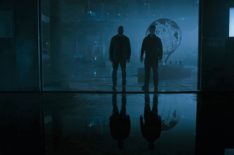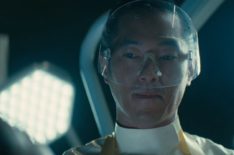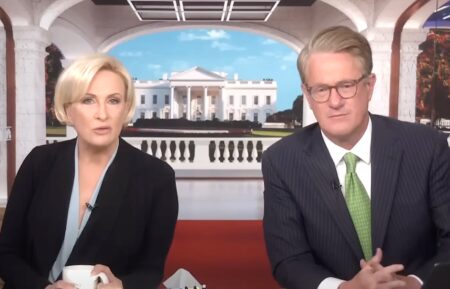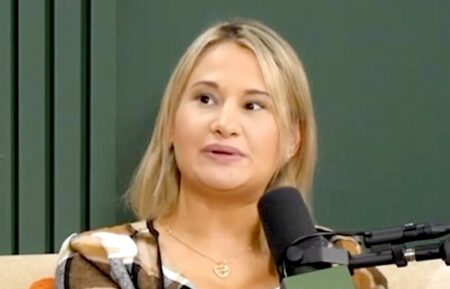‘Westworld’ Gets Under the Skin in Captivating Third Episode (RECAP)
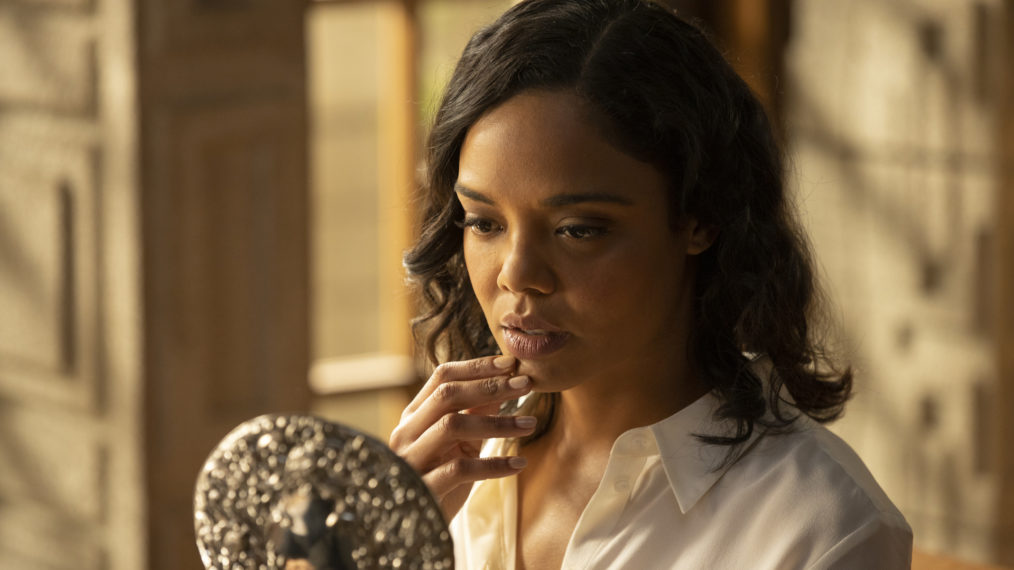
Spoiler Alert
[Spoiler Alert: This recap contains spoilers from Westworld Season 3 Episode 3, “The Absence of Field.”]
The appeal of Westworld, at least as far as I’m concerned, has always been its ability to ask questions about existence. At the show’s core, there is an interesting philosophical debate about free will and the nature of humanity. Those topics were neatly threaded through Season One but have since become lost beneath all the Rubik’s Cube rubbish and smart-alec trickery. The characterization that allows for exploration of those subjects is frequently shunted aside in favor of bombastic set-pieces or cheap thrills.
Thankfully, “The Absence of Field” gets back to the synthetic heart of Westworld, putting introspective character study front-and-center. It’s Season Three’s first great installment and a breakout episode for Tessa Thompson, who is finally able to shed the business suit and dig her nails into something of substance. Because let’s face it, Charlotte Hale of seasons past was a character severely limited in scope — a tightly wound, death-staring authority figure who spoke in corporate jargon. The cold-hearted industrialist felt like a waste of Thompson’s talents, so it’s nice to see an episode that shows off her range as a performer.
Charlotte — or, I guess, Charbot is more appropriate, seeing as the real Charlotte is dead — is in the same position Dolores (Evan Rachel Wood) once was. She is becoming aware of her existence and deciding who she wants to be while her creator pulls strings from behind the scenes. She is a host disguised in someone else’s skin, forced into playing a role in a life that doesn’t belong to her. Following Dolores’s orders to infiltrate Delos, Charbot pinballs between identities — the host she once was, the under-pressure corporate executive, and the unsuspecting mother of a young son that host Charlotte had no idea existed.
What’s fascinating is we don’t quite know who Charbot is, and the episode cleverly plays with those expectations. At first, I thought she was Clementine, then Teddy, then the Man In Black, and while I’m now leaning to one of those over the other two, I still don’t know for certain. For once, it’s a mystery that adds to the story, rather than diminishes it. The audience shares in Charbot’s identity crisis. We can sense the frustration and fear when she cuts into her skin just so she can feel something real. “I feel like I’m changing,” she worriedly tells Dolores after having what is basically a psychological breakdown from the pressure.
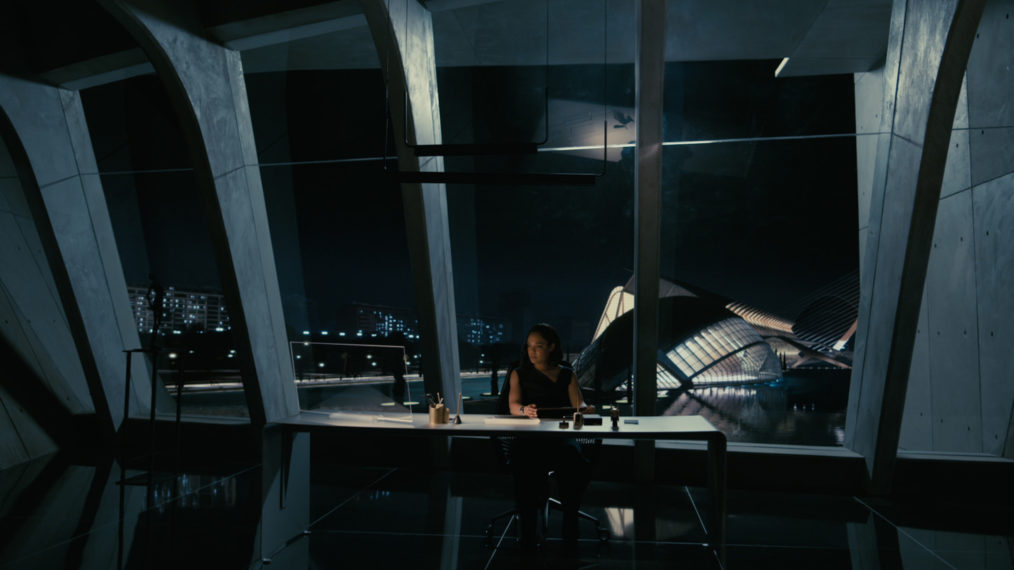
HBO
The real Charlotte led a complicated life. She not only ran a multi-billion dollar company, but she was involved in various clandestine activities within Delos, which is in disarray since the park massacre. Now the mysterious Serac (Vincent Cassell) is plotting a hostile takeover of the business, and there are rumors of a mole within Delos feeding him important data (it turns out that mole was Charlotte). Then there’s her domestic life — an ex-partner who is concerned about her losing her grip on reality and a child who recognizes a difference in his mother even though she looks the same on the surface.
Stepping into Charlotte’s high-priced heels isn’t easy, let alone her skin. And the toll of the job is wreaking havoc in Charbot’s mind. “It’s like [Charlotte’s] trying to take back control… like she wants to cut into her skin and rip me out of my head,” says an increasingly emotional Charbot. She’s a character lost between who she was, who she is, and who she’s becoming. Worst of all, it doesn’t appear she even has a choice, as it’s Dolores in control and calling the shots.
I should touch on who I think Charbot is. The scene in the hotel bedroom heavily hints at Teddy, Dolores’s old Westworld beau, who shot himself at the end of last season. Thompson portrays those trademark Teddy looks with the scared, puppy-dog eyes, and she seems reliant on Dolores for protection and comfort. They also seem to share an affection for one another. “You belong to me, you know that, right?” Dolores asks Charbot, which I suppose can be taken as both caring and domineering. “Don’t hurt yourself, ever again,” she adds. When Charbot asks her to stay, Dolores gets into bed and cradles her.
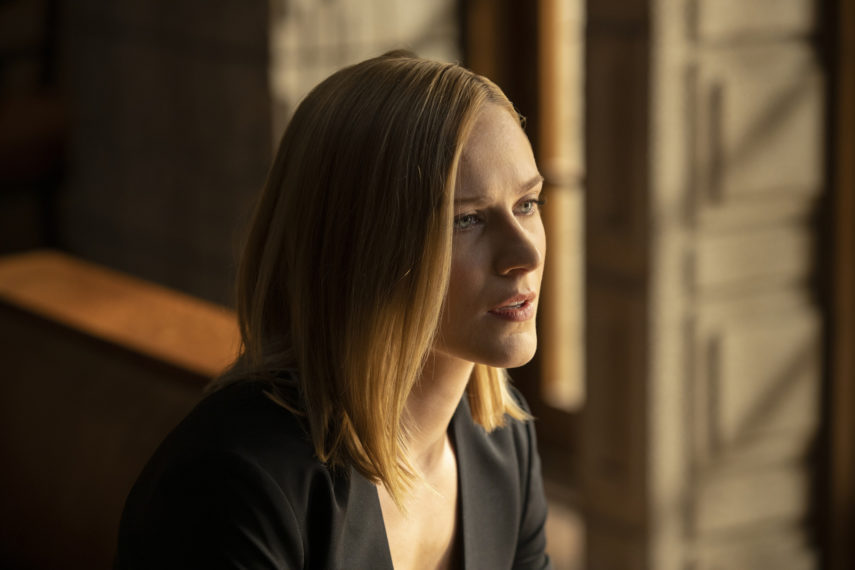
HBO
It’s certainly within the realm of possibility that Dolores removed Teddy’s brain ball after he died and snuck it out of the park. And it wouldn’t be the first time she’s reprogrammed Teddy to do her bidding. The whole reason he killed himself in the first place was because Dolores turned him into a “monster.” The way Dolores manipulates Charbot in this episode is very similar to how she treated Teddy in Season Two, and Charbot’s self-harm has obvious parallels to Teddy’s suicide.
But there is another option, someone else that Dolores used to love — William, aka the Man In Black (Ed Harris). There’s a scene later in the episode when Charbot catches a pervert creeping over her son outside his school, and a sudden protective rage washes over her. “There’s a lot of things you can fake in this world, most people don’t want to see the predator inside,” she says as she wraps her hands around the guy’s throat. “But you reminded me of something,” she continues. “I remember what it’s like to be me. You’re not the only predator here.” It should be noted that Charbot is also wearing black in this scene (she’s wearing white in the hotel).
This all sounds very Man In Black, and the cutting of the arm is reminiscent of how William cut into his arm last season when he began to question his own identity. But I also feel that’s what the show wants us to think, and I’m not sure it stands up to scrutiny under further inspection. William, of course, was never a host (well, as far as we know), he entered the park as a human, invested in it, fell in love with Dolores, and became obsessed with cracking the code. That said, we do know Delos was taking data on all the park’s guests, so it’s theoretically possible that Dolores downloaded William’s consciousness and uploaded it into Charbot.
But if I had to put money on it right now, I would lean towards Charbot being Teddy. Not just because of the affection that Dolores shows, and the fact we know Teddy was a host, but because Dolores orders Charbot to convince the Delos board to let her visit an “old friend,” who I can only assume means the Man In Black. It makes the most logical sense to be Teddy, although, it wouldn’t be the first time Westworld has pulled an unnecessary swerve for swerve’s sake.
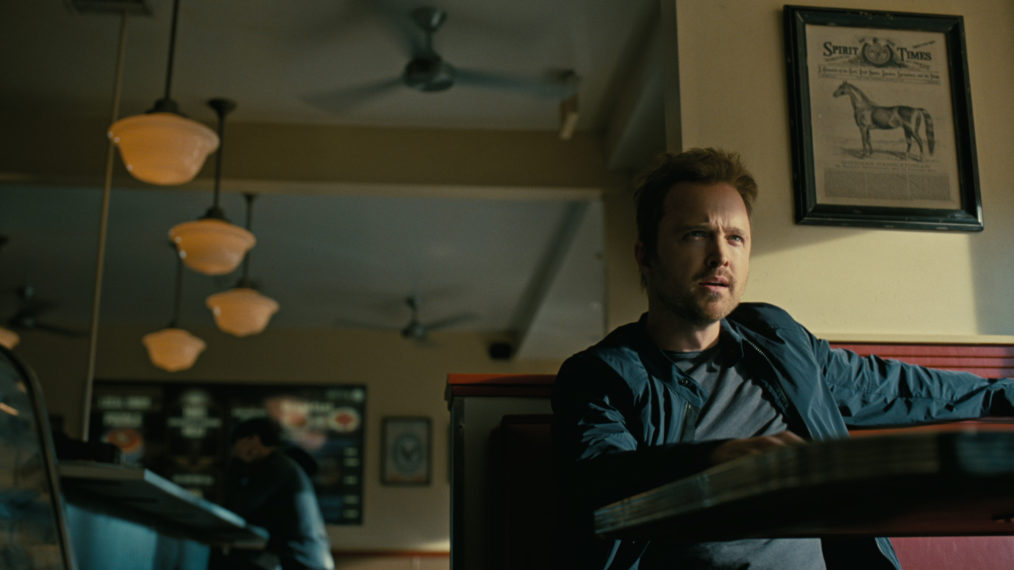
HBO
Dolores’s part in all this is equally compelling. In her quest for world domination, she’s become an amalgamation of her creators, Robert Ford and Arnold Weber. She is now the one making hosts and programming them with narratives to follow. But like her creators, notably Arnold, Dolores is starting to realize that humanity is capable of more than she gave them credit for. Not all humans are monsters. This is seen in her blossoming relationship with Caleb (Aaron Paul), who puts his own life in danger in an effort to save Dolores. Of course, Dolores isn’t the one that needs saving, as she handily takes out a pair of crooked cops and rescues Caleb from a near-death experience.
“You’re a good man,” Dolores tells Caleb. “But the less you know about me, the better.” Caleb is a potential distraction from the mission to destroy Serac’s system, but more than that, he’s a reminder of the goodness in humanity, which goes against Dolores’s current worldview. But try as she might, the former Sweetwater farm girl can’t leave Caleb behind. Despite him being a human and her being a host, Dolores sees herself in the war veteran. “They put you in a cage, deciding what your life will be,” she says. His choices were effectively made for him through the system’s predictive algorithms — a system that knows everything he’s ever done and experienced, including his worst childhood traumas.

HBO
Dolores brings Caleb up to speed on all this because she sees a fighter in him. He made an unselfish choice in a world full of selfish decisions. And so, he doesn’t have to follow his predetermined path in life — a path that ends in suicide according to the system’s algorithm. “Now you have another choice,” Dolores tells him, run, or stay and help her bring about a revolution. For his part, Caleb is drawn to Dolores because she makes him feel alive. “You’re the first real thing that has happened to me in a long time,” he says, which has echoes of William’s early relationship with Dolores. “I’m a dead man either way,” he adds. “At least this way I get to decide who I want to be.”
So far, the Caleb and Dolores partnership is delivering on the potential it promised in the season premiere. And when you add on the complexity of the Charbot and Dolores relationship, plus a genuinely exciting mystery, you have the makings of a top tier episode. Hopefully, Westworld can continue to burrow beneath its shiny surface and reveal something real.
Westworld, Sundays, 9/8c, HBO

